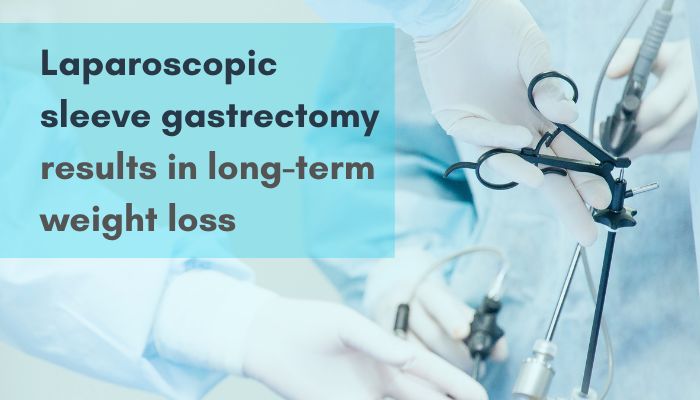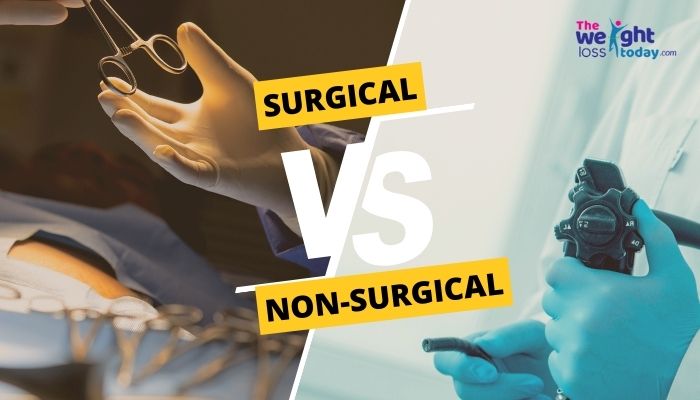Obesity is a complex condition characterized by an accumulation of...

Sleep apnea and how it is associated with Obesity
Sleep apnea refers to a condition in which
58,920 total views, 43 views today
Home » Gastric bypass surgery
Gastric bypass surgery is one of the common types of weight loss surgeries performed globally. In this surgery, the stomach and small intestines is altered to modify the way the food is absorbed and digested. This procedure is performed by creating a small pouch in the upper part of the stomach and connecting it to the small intestine. Thus, the food consumed will go straight into the small stomach pouch, bypass the stomach and directly enter the small intestine.
The gastric bypass surgery aids in weight loss by several mechanisms. Like other bypass surgeries, the amount of food held by the stomach is restricted due to the small stomach pouch. This also facilitates lesser consumption of calories. As the food does not go through majority of the stomach, and the part of the small intestine, there is less food digestion and reduced absorption of nutrients and calories. The new route of the food stream causes changes in the gut hormones, which suppress hunger, promote satiety and reverse obesity-caused metabolic syndrome.
The results of the surgery are good with less risk and minimal complications.
It is performed to lose excess weight and decrease the risk of life-threatening health conditions associated with obesity, such as:
Type 2 diabetes High blood pressure High cholesterol Heart disease Obstructive sleep apnea Infertility Stroke
It is performed in obese people who want to lose weight and have:
Body Mass Index (BMI) 40 or more BMI between 35 to 39.9 with a serious weight-related health issue This surgery can also be the right option for people with BMI 30 to 34 with serious weight-related health issues.
However, everyone planning for the surgery must undergo a screening process and check whether they are fit for the surgery or not. For these weight loss surgeries, the person should be physically and mentally prepared to adopt the required lifestyle changes.The surgery is performed under general anaesthesia. It can be performed as an open surgery or laparoscopic procedure; however, the laparoscopic approach is preferred.
Multiple small incisions are made in the abdomen, through which the laparoscopic instruments are inserted. The surgeon cuts across the top of the stomach and seals it from the rest of the stomach, creating a small, walnut-sized pouch that can hold only a small amount of food. Then, the first portion of the small intestine is cut, and the bottom part is connected to the newly created stomach pouch. The first part of the divided small intestine is connected further down, so that the digestive enzymes and the stomach acids will mix with the food eventually.
The surgery usually takes around 2 -3 hours to complete. The person must stay in the hospital for about 1-4 days after the surgery.In the first three to six months after the surgery, there may be some changes in the body due to rapid weight loss, such as:
The advantage of gastric bypass surgery includes:
Like every surgical procedure, gastric bypass surgery is also associated with both long-term and short-term risks.
Risks that are associated with gastric bypass surgery are:
Some long-term complications and risk associated with gastric bypass surgery are:

Sleep apnea refers to a condition in which
58,920 total views, 43 views today

Since the beginning of 20th century, the overall
58,896 total views, 42 views today

New year is the time for new beginnings.
59,597 total views, 43 views today

Weight loss can be tricky business, as it
59,467 total views, 42 views today

According to a recent study, weight loss through
60,367 total views, 43 views today

According to a recent study, preoperative very low
60,367 total views, 42 views today

A recent study conducted on GERD (Gastroesophageal Reflux
60,371 total views, 42 views today

A recent study done to examine the long-term
59,254 total views, 43 views today

Overweight and obesity is a major health concern
29,539 total views, 27 views today

A recent study published in the Journal of
28,729 total views, 27 views today

The findings from a recent study, published in
28,970 total views, 27 views today

The findings of a recent study, published in
29,370 total views, 27 views today

Obesity is a complex condition characterized by an accumulation of...
Obesity is a lifestyle disorder, characterised by an excess amount...
For obese patients, bariatric surgeries are like a dream come...
Bariatric surgeries are recommended when the obese person fails to...
Obesity is emerging as a global epidemic. In 2016, more...
Obesity is defined as having a body mass index (BMI)...
Obesity is a complex, chronic disease which has an adverse...